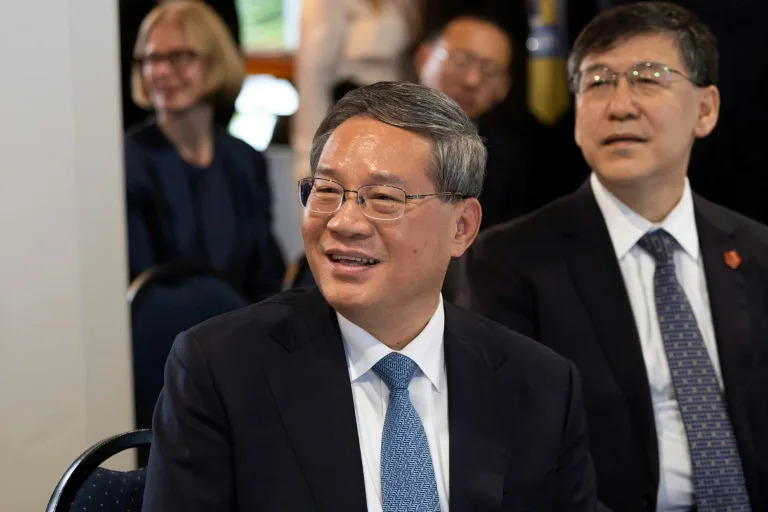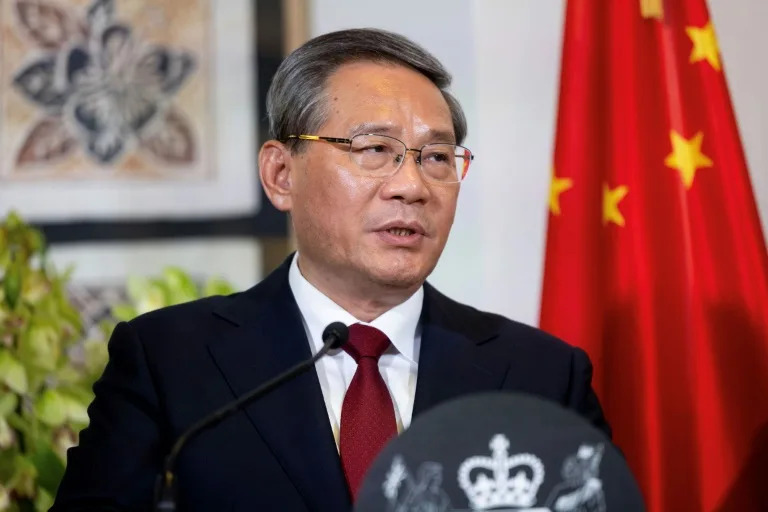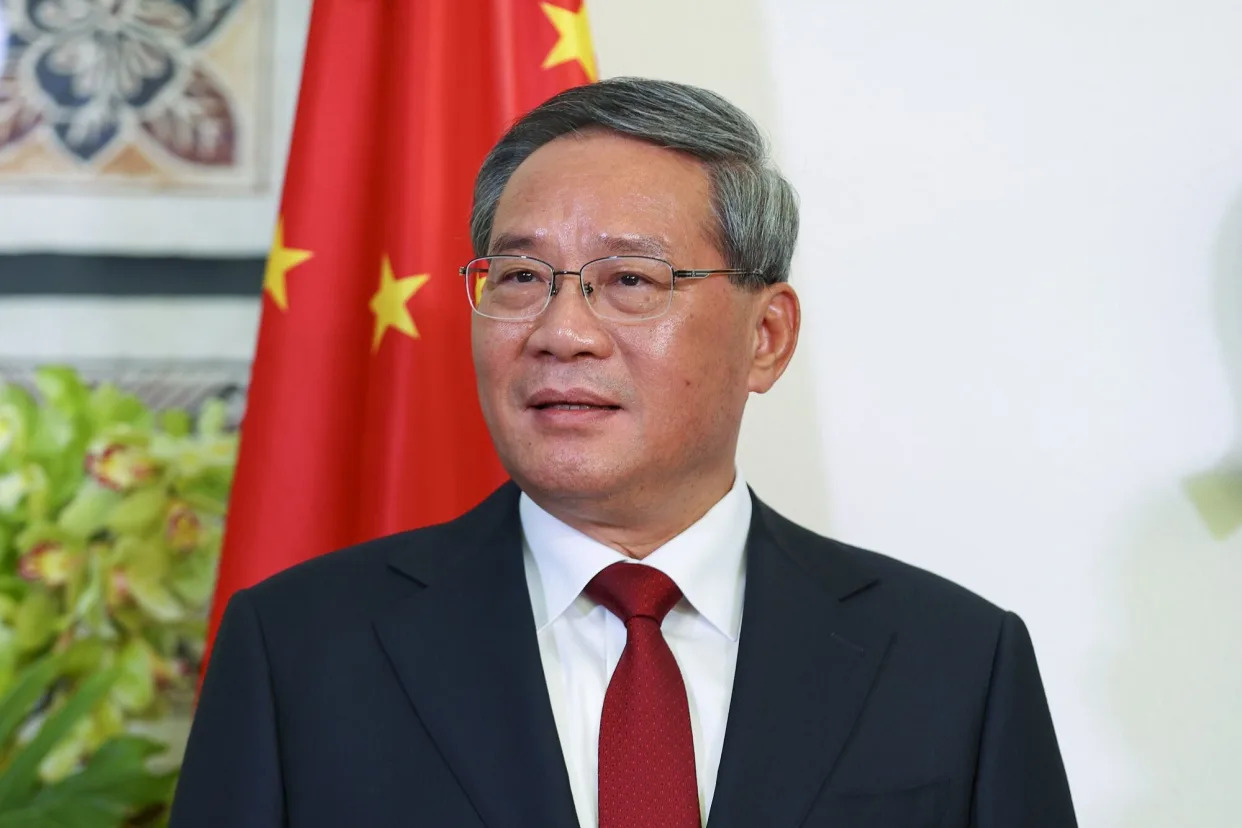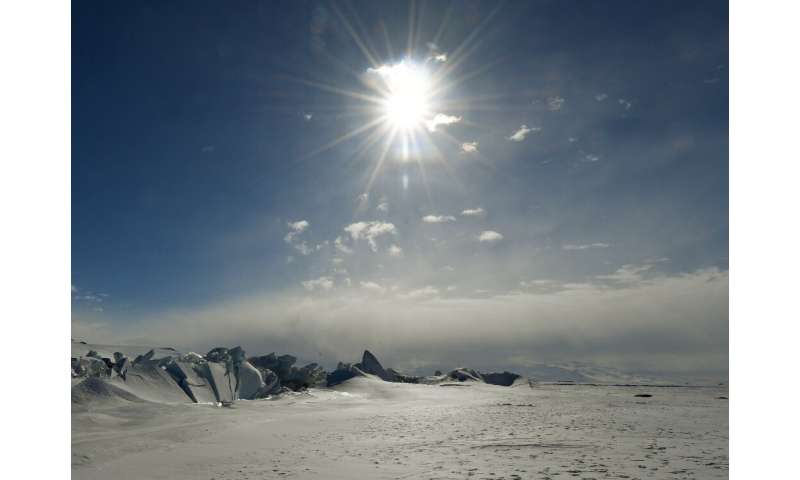First published at ISO Aotearoa.
The Pacific is our family, and being here is a great opportunity to reaffirm New Zealand’s position as a close and trusted partner.
Visiting Niue in June 2024, Prime Minister Christopher Luxon trotted out this familiar official story about the New Zealand government’s relationship to the peoples of Te Moana-Nui-a-Kiwa — one told by National and Labour politicians alike.
The official story is a myth.
Closer to the truth is the view recently given in an interview with the Green Party spokesperson for Pacific Peoples, Teanau Tuiono: “The relationship with New Zealand and the Pacific has been a problematic one, as well. New Zealand has used the Pacific as a place to extract resources or to bring in cheap labour. So that relationship is part of history.”
But any suggestion that New Zealand’s Pacific imperialism is no more than a part of history would be mistaken.
A vision of New Zealand as a launching pad for Western imperialism in the Pacific was present in the minds of British colonisers from their early arrival in Aotearoa. In a speech to the House of Commons in 1845, Charles Buller — Member of Parliament and director of the New Zealand Company — declared:
A British colony in New Zealand would be the natural master of this ocean… You might make it in truth the Britain of the southern hemisphere: there you might concentrate the trade of the Pacific; and from that new seat of your dominion you might give laws and manners to a new world.
Successive 19th century New Zealand politicians — from Governor George Grey to Premiers Julius Vogel, Robert Stout and Richard Seddon — petitioned the Colonial Office in London to turn this vision into a reality and annex a host of Pacific nations — including Fiji, Tonga, Sāmoa, New Hebrides (Vanuatu) and even French controlled territories. They met with with little success. British imperialists were more focused at the time on protecting their existing empire from European rivals and indigenous revolts.
Growing dissatisfied with London’s reluctance, attention turned to imposing direct rule from Wellington on Britain’s behalf. In 1901, the New Zealand government assumed control over the Cook Islands and the location of Christopher Luxon’s recent myth-making, Niue. This was followed by the military invasion of Western Samoa (1914), followed by control of Nauru (1923, in partnership with Australia and the UK) and Tokelau (1926). Direct rule did not end until the election of the first Ulu-o-Tokelau (Tokelauan head of government) in 1993. The brutal history of New Zealand’s imperial rule over these peoples has been documented before. But military intervention and New Zealand imperialism in the Pacific, now in partnership with Australia and the United States, has continued unabated into the 21st century.
Bougainville
In 1997, New Zealand troops were dispatched to Bougainville as a Truce Monitoring Group, marking the end of a nine-year war between the Bougainville Revolutionary Army and the government of Papua New Guinea (PNG). They famously landed on the island armed only with guitars. Many of the personnel still have vivid memories of helping Bougainville’s people. But whatever the personal motivations of individual soldiers, they were being used to serve New Zealand government interests.
The official story portrays New Zealand’s intervention as serving the people, a majority of whom longed for peace. PNG forces had killed 12,000 Bougainvilleans out of a population of 160,000. A third of the people were driven from their homes. But Bougainvilleans also wanted independence and an end to the environmental destruction caused by the huge Panguna copper mine on the island.
The Panguna mine was jointly owned by the PNG government and Australian multinational corporation Rio Tinto. Opening in 1972, the mine generated billions of dollars in profits for Rio Tinto and provided the PNG government with a fifth of its income. Only 1 percent of the profit went back to the people of Bougainville. Meanwhile more than a billion tonnes of tailings from the mine, contaminated with toxic waste, were dumped in the rivers, killing fish, birds and other animals. Tribal lands, home to the spirits of ancestors, were desecrated.
Australia opposed independence for Bougainville and backed the PNG government’s war against its people. They funded the PNG military and supplied them with training, ammunition, aircraft, weapons and even personnel. Phosphorous incendiary munitions which were dropped on villages in 1994 were supplied by Australia. Phosphorous is a weapon of indiscriminate terror, which sticks to various surfaces, including skin and clothes and burns at temperatures of 800–2500 °C. Its use against civilian targets is banned under international law.
Unsurprisingly, the Bougainville Revolutionary Army refused to allow Australian troops onto the island to monitor the truce. “Australia is clearly not neutral because it was a major party to the nine-year war on Bougainville”, said the President of the Bougainville Interim Government, Francis Ona. “The Australian government’s real interest is to allow the safe return of Rio Tinto to mining Panguna.”
Yet five months after New Zealand troops arrived, in April 1998, 250 Australian troops were landing on Bougainville and New Zealand was handing over command of the operation to brigadier Bruce Osborne of the Australian army. “New Zealand had to get involved at the outset to open the door for Australia”, said Reuben Siara, legal advisor to the Bougainville Interim Government.
The 1997 peace agreement included a promise of a referendum on Bougainville’s independence. It took 22 more years for that referendum to be held. Despite 97 percent voting in favour of independence in 2019, the PNG government has so far refused to accept the result and despite a long-running claim for compensation no money has been paid by Rio Tinto. New Zealand’s military intervention in Bougainville has ensured above all that Western imperial interests are protected.
Timor Leste
In 1999, New Zealand troops deployed to East Timor as part of a United Nations operation led by Australia. The territory had been under a brutal Indonesian occupation since 1975, when Indonesian forces launched a massive air and sea invasion to crush Timorese independence.
Elections in the former Portuguese colony that year had delivered victory to the Frente Revolucionária de Timor-Leste Independente (Revolutionary Front of Independent East Timor, or Fretilin). Indonesia’s military dictator, President Suharto, ordered the invasion due to Cold War fears about the spread of communism, along with the discovery of oil and gas reserves in the seabed between East Timor and Australia. Amnesty International estimates that up to 200,000 Timorese people — a quarter of the population — were subsequently killed during Indonesia’s 24 year occupation.
Declassified documents have shown that the United States and Australia fully supported the invasion. The reason at the time is on the public record. Australian politician Justin O’Byrne salivated in a speech to the Senate in 1973 about East Timor’s “gas and oil in quantities that could match even the fabulous riches of the Middle East.”
The New Zealand government also supported Indonesia’s invasion. A telegram sent in 1975 by Frank Corner, Secretary of Foreign Affairs, to the New Zealand embassy in Australia said: “The government had a private, and a public position on the problem. Privately, we recognised… integration with Indonesia. The government couldn’t state this openly however, and it stressed that the wishes of the Timorese people were the fundamental factor.” Throughout the 1980s and early 1990s, Western government support for the initial invasion extended to Indonesia’s ongoing occupation.
The change in policy came in 1998. The previous year, Indonesia’s President Suharto had been overthrown by a popular revolution. The new reformist government was open to greater autonomy for East Timor. Australia’s right wing Prime Minister John Howard saw the opportunity to cut out the middle man and bully a fledgling government in an independent East Timor to grab a slice of the resources. And with thousands of Australian troops on the ground effectively holding the new Fretilin government hostage, John Howard got his way.
On 20 May 2002, the very first day of formal independence for the Democratic Republic of Timor-Leste, the Timor Sea Treaty was signed granting billions of dollars worth of reserves to Australia and ensuring Australian control over all exploration and processing of oil and gas in a “Joint Petroleum Development Area”.
The official account of New Zealand’s deployment to East Timor tells of the troops defending Timorese people from rogue Indonesian militia opposed to independence. “The real agenda for the UN ‘peacekeeping force’”, explained investigative journalist John Pilger at the time, “is to ensure that East Timor, while nominally independent, remains under the sway of Jakarta and Western business interests.”
Impoverished by decades of occupation and saddled with an unfavourable oil treaty, the new nation state was desperately poor. Wages were capped at US$3 a day. The UN reported that half the population were living on less than US$0.55 a day. In 2000, President Xanana Gusmao warned that East Timor’s underpaid soldiers led an impoverished “subhuman existence” and might eventually revolt. In 2006, his prediction came to pass. New Zealand troops returned to Timor Leste, again under Australian command. The uprising was suppressed. The Fretilin Prime Minister, who was courting Chinese investment to build up oil and gas processing facilities in Timor Leste, was forced to resign and a new government more compliant with Western imperialism was installed.
Solomon Islands
In 2003, New Zealand troops landed at Honiara, capital of the Solomon Islands. The official mission of the Australian-led force was to “restore order”. Five years of inter-ethnic conflict had cost more than 100 lives. Around 40,000 people had been driven from their homes. The New Zealand soldiers would stay on for a decade, and return again after that.
Prior to the 1880s, the Solomons were a collection of separate, self-governing islands. In 1883, they were colonised by Germany and Britain, forcing disparate ethnic groups with different languages and customs into a single nation.
Ethnic tensions created by colonisation were further heightened by the US occupation of the Solomons during World War Two, when they shifted the nation’s capital from the island of Malaita to a neighbouring island, Guadalcanal (known in the indigenous language as Isatabu). American demand for labour also drove mass migration of Malaitans to the new capital, putting pressure on land held by Isatabu people. Women have the primary rights to land on Guadalcanal. On Malaita, it is the men. Over time, Malaitan men married Guadalcanal women, gaining land rights on the island.
When the 1998 Asian economic crisis threw thousands out of work, simmering ethnic tensions boiled over. The Isatabu Freedom Movement launched attacks on Malaitan migrants. The Malaitan Eagle Force took up arms in response. Announcing the New Zealand military deployment, Foreign Minister Phil Goff labelled the Solomon Islands a “failed state” which needed outside intervention by Australia and New Zealand.
But the real reasons for intervention were plainly stated in a report titled Our Failing Neighbour, published in 2003 by the Australian Strategic Policy Institute. Firstly, “Australia’s standing in the wider world – including with the United States — is at stake.” New Zealand agreed, with Foreign Minister Winston Peters commenting in 2006 that “New Zealand’s involvement in the Solomon Islands and Timor Leste are good examples of where our international contribution coincides with American interests.” And secondly, according to the Australian Strategic Policy Institute, “the collapse of Solomon Islands is depriving Australia of business and investment opportunities.”
In 1998, Australian multinational Delta Gold had opened a huge mine on Guadalcanal. The lucrative mine accounted for a quarter of the Solomon Islands economy, but the benefits did not flow to local people. The extreme inequality in the Solomons meant that in 2003, 1 percent of households were receiving 52 percent of all income. Australian intervention was not intended to change this. It was to get the gold mine, seized by Guadalcanal militants in 2000, back under Australian management. The mine did reopen under new Australian owners, Allied Gold, and two years later the last New Zealand and Australian troops left — only to return after further unrest in 2021.
Tonga
In 2006, New Zealand and Australian troops were sent to the Kingdom of Tonga — again to “restore order”. Tonga was a deeply unequal society dominated by the king and his nobles. Of the 33 MPs in the Tongan parliament, fourteen were appointed by the king for life and nine more by the 33 members of the country’s nobility. Only nine were directly elected by the “commoners”.
The royal family used their power to amass huge personal fortunes in offshore bank accounts in collaboration with international capitalists. The king made US$26 million selling Tongan passports — mainly to Hong Kong residents ahead of the territory’s transfer back to China in 1997. Forbes magazine put the wealth of his daughter, princess Pilolevu, at over US$30 million. Average income in Tonga in 2005 was less than US$40 a week.
That same year, mass protests demanding democracy saw a tenth of the total population take to the streets. A six week strike by public sector workers demanded pay rises of 60-80 percent and a Royal Commission to be established immediately “to review the Constitution to allow a more democratic government to be established.” The 2005 general election delivered seven of the nine directly-elected seats to the Human Rights and Democracy Movement, headed by MP ʻAkilisi Pōhiva.
When King Tāufaʻāhau Tupou IV died in September 2006 and unpopular Prince George Tupou V was named as his successor, popular anger boiled over into riots. Troops arrived from Australia and New Zealand to enforce martial law.
Foreign Minister Winston Peters said, “Our presence is not about taking sides. New Zealand has been fully supportive of peaceful democratic reform in Tonga.” But ʻAkilisi Pōhiva condemned the foreign intervention. The chair of the National Committee for Political Reform, Dr Sitiveni Halapua, said the foreign troops were there “to make people afraid and to support the government.” Once order was restored, ʻAkilisi Pōhiva and other pro-democracy MPs were arrested and charged with sedition.
The pressure for change in Tonga was unstoppable, but the revolutionary potential of 2006 was blunted by the New Zealand military so that when democratic reform eventually arrived four years later, the wealthy and powerful were protected. The net worth of today’s reigning king, Tupou VI, is $100 million.
PACER Plus
While direct military intervention is the most visible expression of New Zealand imperialism in the Pacific, it is only the tip of the spear. Behind the use of armed force is diplomatic pressure and the wielding of economic power over Pacific nations, including through “aid programmes” with strings attached. Aid conditions include requirements for Pacific governments to implement policies favourable to Western business interests. Sometimes they require aid recipients to spend the money on goods and services from the donor country. This “boomerang aid”, which mainly benefits Western businesses, has long been a feature of Australian foreign policy and is now part of New Zealand’s approachas well.
A clear example New Zealand’s economic imperialism is the Pacific Agreement on Closer Economic Relations (PACER) and the resulting multilateral free trade agreement known as PACER Plus.
PACER began as an attempt to sabotage the Pacific Island Countries Trade Agreement (PICTA), a Pacific-led initiative launched in 2001 to expand trade in goods among 14 members of the Pacific Islands Forum, excluding Australia and New Zealand. The sabotage was successful. Pressure was applied to Pacific nations not to ratify the deal and PICTA never came into force.
The PACER Plus free trade deal came into effect in 2020. Officials at the Ministry of Foreign Affairs and Trade (MFAT) say the deal will “boost sustainable economic development and contribute to a more stable and resilient Pacific region.”
But independent analyses found that the removal of import tariffs will deprive Pacific nations of $US60 million each year in government revenue, cost 75% of Pacific manufacturing jobs and have negative health impacts due to an increase in cheap, unhealthy foods as well as threats to healthy, culturally appropriate food production.
The real aims, also touted by MFAT, say that PACER Plus will “improve market access” for New Zealand businesses, “provide greater consistency, certainty and transparency trading in the Pacific region” and “generate opportunities to invest or partner with Pacific businesses.” A petition signed by 171 prominent individuals and 33 organisations in the region, including the Australian Council of Trade Unions and the New Zealand Council of Trade Unions, called on Pacific governments not to sign.
Imperialism
Imperialist expansion and domination of the Pacific has been a feature of New Zealand’s foreign policy since the earliest stages of colonisation. It is not the result of decisions taken by this politician or that political party. As Marxists like Vladimir Lenin and Nikolai Bukharin pointed out over a century ago, imperialism is an inevitable product of capitalism. Summarising their work, US socialist Brian Jones writes:
Capitalism, in its “classic” phase was characterized by competing commodity producing firms within unified national markets… Bukharin and Lenin set out to show, however, that the era of small business competition necessarily led to the creation of giant trusts and cartels.
What is a “trust” or a “cartel” for that matter? These are simply organizations within an industry or even across industries that form to confer the advantages of monopoly on their participants… Lenin uses the example of a German coal syndicate that came to dominate 87 percent of coal output in its area in 1893, and 95 percent by 1910. There are countless modern examples. The worldwide media were controlled by fifty corporations worldwide in 1983, by 2004 there remained only five. Their goal is to use their immense size to destroy their competition, not increase it. By means of buying political influence, under-selling small producers, and so on, large enterprises systematically choke to death their smaller rivals… this concentration reached a point over 100 years ago where certain industries became fused with the national state…
The national borders are too narrow for the growth of these industries, and they are compelled to constantly acquire new markets, new sources of raw material, and new outlets for investment outside the “home” nation. Once the world was already carved up among the world powers, they are forever pushed by market competition toward rearranging who owns what, and have no other way to settle who gets what except by force. Thus, the era of imperialism is one of constant economic competition between states that breaks out again and again into open military competition.
Each state may employ various policies—but imperialism is not reducible to a particular policy. The policies themselves must be seen as flowing form a worldwide system of imperialist competition.
This not only explains why New Zealand governments have always acted to suppress Pacific self-determination and to secure Western control of resources, by also why they whip up fear of “Chinese influence” in the Pacific, and why they sometimes even criticise “French colonialism”.
Liberation in the Pacific first of all requires that working people in Aotearoa see through the smokescreen of official lies about New Zealand’s role. Ultimately however, it also requires the end of the capitalist system which — to varying degrees — oppresses all of us in Te Moana-Nui-a-Kiwa.













